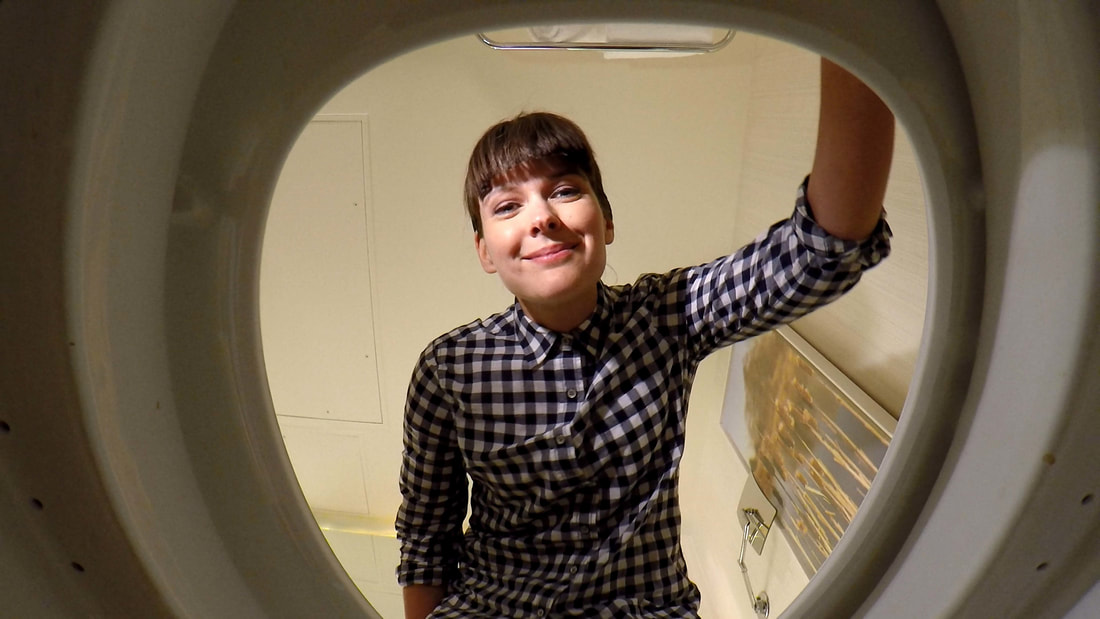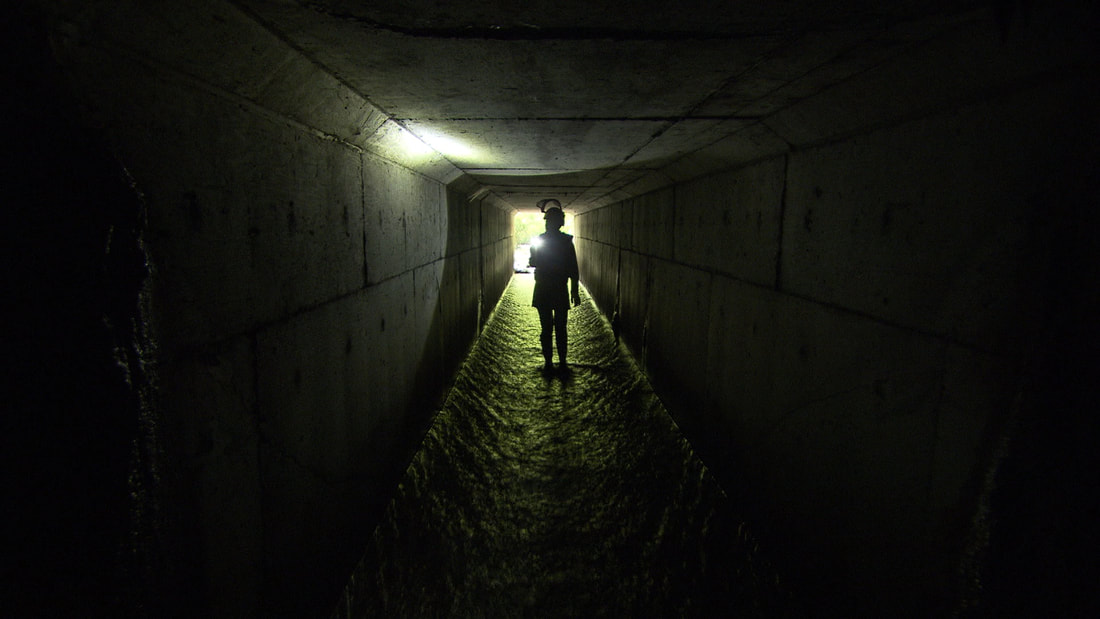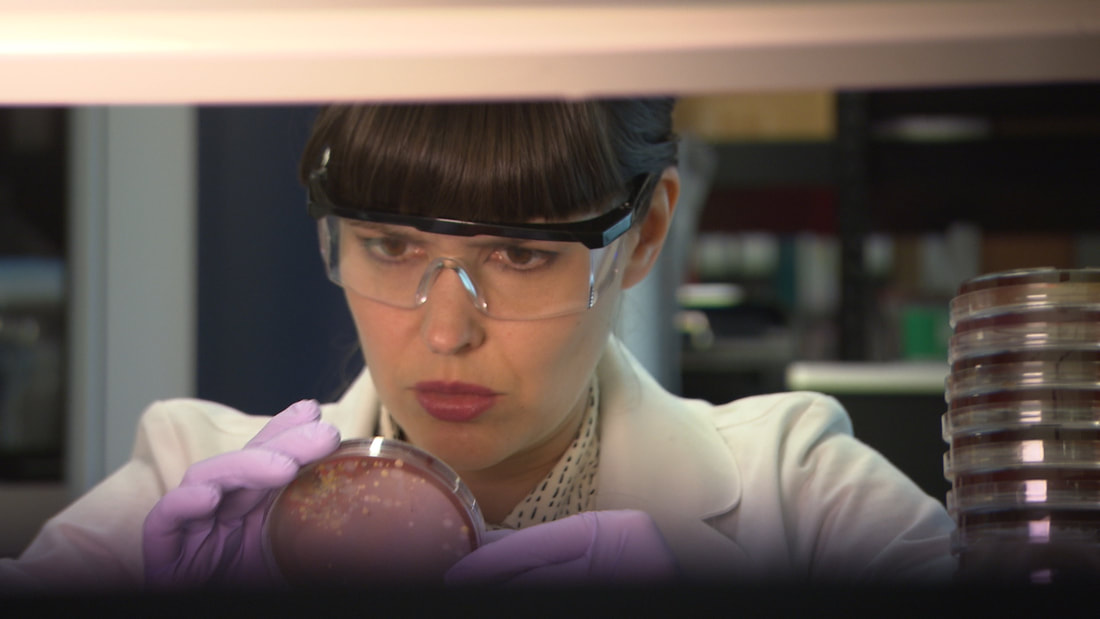|
Answers provided by Executive Producer Dugald Maudsley.
What inspired this story?
DM: Infield Fly Productions has produced five other episodes of Myth or Science for the Nature of Things, the Canadian Broadcasting Corporation’s long-running science and natural history strand. When we were looking to produce our sixth episode we were amazed to discover the extraordinary science being done in the field of feces! Even more interesting was the fact that scientists didn’t see poop as a waste product to be disposed of, they regarded it as something powerful and good that could change our lives. We were hooked. Describe some of the challenges faced while making this film? DM: The CBC made it very clear that while they wanted a documentary about poo they didn’t want to see any poo in the documentary – a difficult challenge but one that our director, Jeff Semple, met in a very creative and fun way. The only poo you’ll ever see in this documentary is the stuff left behind by a herd of Holsteins. Otherwise, 44 minutes of documentary about poo without a dookie to be seen. How do you approach science storytelling? DM: We approach science storytelling with two things in mind: provide an insight into cutting edge science in a way that’s accessible and visually exciting. Our goal is to take our audience along with us on a journey of discovery. We don’t want to tell them what we’ve uncovered; we want them to uncover it with us. And we want them to have fun at the same time. Myth or Science is the perfect vehicle for this. It allows our host to become part of the story, to go on a journey with our audience and reveal amazing new science that, we hope, will help change the lives of our viewers. What impact do you hope this film will have? DM: We hope the film has the same impact on other people it had on us; rather than see poo as something to be whisked out of sight, we hope it is now seen as an extraordinary product that can provide clean water, clean energy, help save endangered animals and provide an early warning system when things are going wrong inside our bodies. What next? DM: Next is a documentary about food and how little we know about it and, hopefully, a documentary about longevity. What do you feel is most important to remember when telling science stories to younger audiences? Dr. Jennifer Gardy, Host of Myth or Science: The Power of Poo: “I’d say that for me, engaging young viewers is all about tapping into that “big kid” part of your personality. Kids are naturally curious and enthusiastic about the world around them, and letting that show in your own storytelling - being excited about discovering something or doing an experiment on-screen - really helps take them along on an amazing journey with you!” Why did you pick Dr. Jennifer Gardy to be the on-camera host telling this story? DM: Dr. Jennifer Gardy is an amazing host. She is a microbiologist, but she’s also funny, witty and game to try anything. This is exactly what we need for Myth or Science. Our goal is not to tell our audience what we’ve uncovered but have them come on a journey with us and discover it for themselves. We also want Jennifer to be a guinea pig – experience science personally and illustrate key concepts by experimenting on herself. This makes the science more accessible and interesting. Of course, Jennifer also has the scientific chops. She teaches at the University of British Columbia, she works for the British Columbia Centre for Disease Control and she does basic research. Finally, Jennifer is an awesome communicator. She knows how to explain difficult concepts in an understandable way, how to cut through the confusion that often surrounds scientific subjects and, of course, she has the cred when it comes to speaking to other scientists.
2 Comments
3/21/2019 06:04:37 pm
I know eversince I was young that I wanted to be a filmmaker. I wanted to direct my own movie and I wanted to be an actor too. I thought it would be very easy to land a job related to this field. All my life I felt people have always ignored me because I did not come from a prominent family and I also grew up in the province. I was already in my thirties when I discovered that my great grandfather was a famous actor in my country. My father moved to the province because he is not interested in their families lifestyle. My grandfather and my uncle is an actor too. Things would have been easier had I known these and dropped names but I think I am perfectly fine.
Reply
Leave a Reply. |
AuthorAs the curators of the Science Media Awards Summit in the Hub (SMASH), we believe storytelling is a common thread in our shared human experience, and that new media allows us to convey the wonders of scientific discovery in new and compelling ways. Archives
October 2018
Categories |




 RSS Feed
RSS Feed